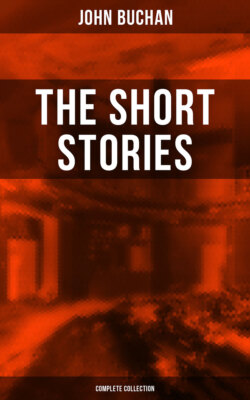Читать книгу The Short Stories of John Buchan (Complete Collection) - Buchan John - Страница 12
На сайте Литреса книга снята с продажи.
III
ОглавлениеThe real thing,—Heaven knows it is what we are all striving after with various degrees of incompetence. I looked forward to the transformation of this jaded man with an interest not purely of curiosity. His undoubted cleverness, and the habitual melancholy of his eyes, gave him a certain romantic aloofness from common life. Moreover, Wratislaw had come to believe in him, and I trusted his judgment.
I saw no more of the man for weeks, hearing only that his health was wretched and that he had gone for a long holiday to the south. His private income had always been considerable, and his work could very well wait; but his admirers were appalled by the sudden cessation of what had been a marvellous output. I was honestly glad to think of his leisure. I pictured him once more the master of himself, gathering his wits for more worthy toil, and getting rid of the foolish restlessness which had unnerved him. Then came a chance meeting at a railway-station, where he seemed to my hasty eyes more cheerful and well looking; and then my wanderings began again, and London gossip, reputation, and chatter about letters were left a thousand miles behind.
When I returned I had almost forgotten his name; but the air of one’s own land is charged with memories, and the past rises on the mind by degrees till it recovers its former world. I found Wratislaw looking older, grimmer, and more irritable, ready to throw books at me for tantalising him with glimpses of an impossible life. He walked me fiercely through Hyde Park, full of abrupt questions as of old, and ever ready with his shrewd, humourous comment. Then in my turn, I fell to asking him of people and things, of the whole complication of civilised life from which I had been shut off for years. Some stray resemblance in a passing face struck me, and I asked about Layden.
Wratislaw grunted savagely. “In a way I am grateful to the man for showing me that I am a fool.”
“Then he has gone back to his old life?” I asked, not without anxiety.
“Listen to me,” he said gruffly. “His health broke down, as you know, and he went abroad to recover it. He stopped work, dropped out of publicity, and I thought all was well. But the man cannot live without admiration; he must be hovering in its twopenny light like a moth round a candle. So he came back, and, well,—there was a repetition of the parable of the seven devils. Only he has changed his line. Belles-lettres, society small-talk, everything of that kind has gone overboard. He is by way of being earnest now; he talks of having found a mission in life, and he preaches a new gospel about getting down to the Truth of Things. His trash has enormous influence; when he speaks the place is crowded, and I suppose he is in hopes of becoming a Force. He has transient fits of penitence, for he is clever enough to feel now and then that he is a fool, but I was wrong to think that he could ever change. Well, well, the band- playing for the ruck, but the end of the battle for the strong! He is a mere creature of phrases, and he has got hold of the particular word which pleases his generation. Do you remember our last talk with him at Heston? Well, read that bill.”
He pointed to a large placard across the street. And there in flaming red and black type I read that on a certain day under the auspices of a certain distinguished body Mr. Arnold Layden would lecture on The Real Thing.
